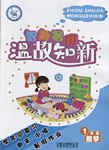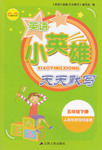

假设你是李华,正在英国伦敦参加夏令营。请给在该市的网友Jack写一封电子邮件,说明你想与他见面,并去参观他的学校。同时告诉他,你准备了中国结作为礼物赠送给他,感谢他在网上解答你在英语学习上的问题。
注意:
1. 词数100左右;
2. 可以适当增加细节,以使行文连贯;
3. 参考词汇:中国结:Chinese knot
Dear Jack,
___________________________________
Yours,
Li Hua
 智趣暑假温故知新系列答案
智趣暑假温故知新系列答案 英语小英雄天天默写系列答案
英语小英雄天天默写系列答案 暑假作业安徽少年儿童出版社系列答案
暑假作业安徽少年儿童出版社系列答案科目:高中英语 来源:山西省太原市2016-2017学年高一下学期期末考试英语试卷 题型:阅读理解
Tu Youyou, born in December, 1930, is a Chinese scientist and educator. She is best known for discovering artemisinin (青蒿素) used to treat malaria (疟疾), which has saved millions of lives. For her work, Tu received the 2015 Nobel Prize in Medicine.
Scientists worldwide had tried over 240, 000 medicines to treat malaria without success. In 1969, Tu Youyou, then 39 years old, decided to turn to traditional Chinese herbs(草药) for possible solutions. She looked into the Chinese medical classics in history, visiting traditional Chinese doctors all over the country on her own. She gathered her findings in a notebook, in which she recorded 640 methods of treating malaria. She and her team also experimented with over 2, 000 traditional Chinese herbs.
During this time, her husband was forced to work in the countryside, and their young daughter had to take care of herself in Beijing.
Years of research all came down to one type of herb named qinghao. The animal tests showed it was completely effective in mice and monkeys, So Tu volunteered to be the first human subject. “As head of this research group, I had the responsibility’ she said. It was safe with, her; so she continued to try it out with more human patients.
In 2007, her office was in an old apartment building in Beijing. Before 2011, Tu Youyou had been described as “almost completely forgotten by people1”, Yet in 2015, the Nobel Prize committee said her discoveries had given the world powerful new ways to fight a powerful disease which affected hundreds of millions of people every year. In terms of improving human health and reducing suffering, Mrs. Tu’s contribution is beyond words.
1.How did Tu Youyou find qinghao as a treatment?
A. By testing it on children. B. By researching for years.
C. By reading foreign books. C. By asking malaria patients.
2.What does the underlined word “effective” mean in Paragraph 4?
A. Successful. B. Useless. C. Unclear. D. Normal
3.What can we infer from the last paragraph about Mrs. Tu?
A. She couldn’t afford an apartment in Beijing.
B. She didn’t want her findings to be known.
C. She didn’t care much, for fame while researching.
D. She wasn’t able to describe her findings dearly
查看答案和解析>>
科目:高中英语 来源:广东省汕头市2016-2017学年高二上学期期末考试英语试卷 题型:书面表达
假如你是李华,是高三某班班长。为了丰富同学们的课外生活,班级准备成立一个自行车俱乐部(cycling club)。请你根据活动的背景及下面的提示,用英语写一则口头通知。
每周训练一次,由体育老师辅导,安排在每周三下午第三节的课外活动时间;
器材自备,活动免费。
是放松的好机会,希望大家加入。
注意:1. 可适当增加细节以使行文连贯;
2. 词数100 左右(不包含已给的开头和结尾)。
Attention, please, everyone. Ever since we entered Senior 3, _____________________________________
___________________________________________________________________________________________
___________________________________________________________________________________________
___________________________________________________________________________________________
___________________________________________________________________________________________
___________________________________________________________________________________________
________________________________________________________________________
That’s all. Thank you.
查看答案和解析>>
科目:高中英语 来源:广东省汕头市2016-2017学年高二上学期期末考试英语试卷 题型:单项填空
Every great culture in the past had its own ideas of beauty _______ in art and literature.
A. expressed B. express
C. being expressed D. to be expressed
查看答案和解析>>
科目:高中英语 来源:广西省南宁市2016-2017学年高一下学期期末考试英语试卷 题型:七选五
Training for a marathon (马拉松) requires careful preparation and steady, gradual increases in the length of the runs. 1., buy the best-fitting running shoes you can find. No one can say which brand will work best for you or feel best on your feet, so you have to rely on your experience and on the feel of each pair as you shop. When you have found shoes that seem right, walk in them for a few days to double-check the fit. 2.. As always, you should stretch (伸展) at least ten minutes before each run to prevent injuries.
During the first week, do not think about distance, but run five minutes longer each day. 3., it is wise to take a day off to rest. But during the next week, set a goal of at least a mile and a half per run. 4.. After two weeks, start timing yourself. 5.. Depending on the kind of race you plan to enter, you can set up a timetable for the remaining weeks before the race.
A. After six days
B. For a good marathon runner
C. Before you begin your training
D. With each day, increase the distance by a half mile
E. If they still feel good, you can begin running in them
F. Time spent for preparation raises the quality of training
G. Now you are ready to figure out a goal of improving distance and time
查看答案和解析>>
科目:高中英语 来源:湖北省2017届高三4月调研考试英语试卷 题型:阅读理解
In 1917 Orville Wright predicted that "the aeroplane will help peace in many ways –in particular I think it will have a tendency to make war impossible.” Earlier in 1904, American journalist John Walker declared, “As a peace machine, the value of the aeroplane to the world will be beyond computation.” This wasn’t the first grand promise of technology. In that same year Jules Verne announced, “The submarine(潜艇)may be the cause of bringing battle to a stoppage.”
Alfred Nobel, sincerely believe his dynamite(火药) would be a war obstacle: “My dynamite will sooner lead to peace than a thousand world conventions(公约).” Similarly, when Hiran Maxim, inventor of the machine gun, was asked in 1893, “Will this gun not make war more terrible?” he answered, “No, it will make war impossible.” Gugliemo Mareconi, inventor of the radio, told the world in 1912. “The coming of the wireless time will make war impossible, because it will make war ridiculous.” General James Harbord, chairman of the board of RCA in 1925, believed, “Radio will serve to make the concept of Peace on Earth, Good Will Toward Men a reality.”
David Nye, a historian of technology, adds to the list of inventions imagined as abolishing war forever and leading to universal peace the hot-air balloon, poison gas, land mines and laser guns.
It is not that all these inventions are without benefits—even benefits toward democracy. Rather, it’s the case that each new technology creates more problems than it solves. “Problems are the answers to solutions,” says Brian Arthur.
Most of the new problems in the world are problems created by previous technology. These problems are nearly invisible to us. Every year 1.2 million people die in automobile accidents. The technological transportation system kills more people than cancer. Global warming, environmental poisons, nuclear terrorism, and species loss, are only a few of the many other serious problems troubling people.
If we embrace(拥抱) technology we need to face its costs.
1.What will new inventions do according to the first two paragraphs?
A. They will increase wars.
B. They will lead to peace.
C. They will serve people.
D. They will break conventions.
2.What does the author list so many inventions?
A. To show people’s creativity.
B. To appreciate their benefits.
C. To contradict the original ideas.
D. To prove grand promises.
3.What does the author hope to tell us about new technology through the text?
A. It will experience many tests.
B. It will bring about huge costs in the world.
C. It provides answers to many problems.
D. It presents more problems than it solves.
查看答案和解析>>
科目:高中英语 来源:新疆呼图壁县第一中学2016-2017学年高二期末考试英语试卷 题型:阅读理解
THE WAY TO READ FAST
Perhaps you have been told about some habits(习惯) which stop a person reading fast and have been strongly asked to break those habits which you might have.
Do you still have any of these bad habits7 Check yourself by answering "yes" or "no" to these questions:
1. Do you move your lips(嘴唇) when reading silently?
2. Do you point to words with your finger as you read?
3. Do you move your head from side to side as you read?
4. Do you read one word at a time?
If you answer "yes" to any of these questions, start at once to break the habit.
If you move your lips, hold your fingers over them, or hold a piece of paper between your lips while you are reading. Then if your lips move, you will know it and can stop them.
If you point to words, hold the two sides of your book, one side with your left hand, the other side with your right hand. Then you will not have a free finger to use in pointing while reading. If you move your head, place your chin(下巴)in one hand, and hold your head still(不动地).
If you read no more than one or two or three words at a time, you need to work very hard in learning to take in more words at each glance(看一眼) as your eyes travel across the lines of words.
1.You may hold your fingers over your lips while reading
A. to hold a piece of paper between them B. to feel whether y our lips move or not
C. to tell others to be silent D. to stop yourself talking to others
2.When your eyes travel across the lines of words,
A. you need to read the words out B. you need to look at every word carefully
C. you need to remember every word D. you need to read several words at a time
3.When you read,
A. don’t use your finger to point to words B. don’t hold your books with your hands
C. don’t hold your head still D. don’t do any of the things mentioned(提到)above.
4.This passage mainly talks about .
A. the importance of fast reading B. the bad habits in reading
C. the way to read fast D. both A and B
查看答案和解析>>
科目:高中英语 来源:江苏省如皋市2016-2017学年高二选修六Unit 2 What is happiness to you同步练习英语试卷 题型:完成句子
go after head for cheer up to one
查看答案和解析>>
科目:高中英语 来源:西藏自治区林芝市2016-2017学年高二下学期期末考试英语试卷 题型:完形填空
The house next door had been empty for so long that we had quite forgotten what it was to have neighbours. One day, _______, a great furniture lorry drew up near our front gate and in a short time, all kinds of furniture were _______ on the pavement. A small car arrived, out of which came seven people: a man, a woman and five children of_______ages. The children hurried out and began laughing _______as the whole family moved into the house. Windows were_______ open; furniture was put into_______; and little faces looked curiously at us over the fence and disappeared. It was our first _______to the Robinsons.
Though we became good _______with our new neighbours, we often had causes to be made angry by them. Our garden became an unsafe place: little boys_______as cowboys or Indians would jump up from behind bushes, ________ wooden guns at us and ________us to put our hands up. Sometimes our lives were ________; at others, we were killed with a ________"Bang! Bang!"Even more dangerous were the arrows(箭)that occasionally came sailing ________the garden fence. But we did not________go in fear of our lives. The Robinsons were friendly and helpful and when we left for the holidays, we knew we had nothing to fear________our neighbours were around. We understood what it was like to have________in the long, friendless, winter evenings________Mr.Robinson would________in for a cup of tea and chat; or when Mr Robinson would________over the fence and talk endlessly with Father about gardening problems.
1.A. but B. therefore C. however D. strangely
2.A. unloaded B. removed C. loaded D. destroyed
3.A. the same B. various C. young D. middle
4.A. happily B. sadly C. astonishingly D. terribly
5.A. broken B. kicked C. forced D. pushed
6.A. place B. room C. order D. use
7.A. management B. introduction C. interview D. arrangement
8.A. enemies B. strangers C. friends D. relatives
9.A. looked B. pretended C. dressed D. worn
10.A. throw B. put C. fire D. point
11.A. ask B. order C. make D. lead
12.A. saved B. wasted C. devoted D. spared
13.A. soft B. sharp C. funny D. slow
14.A. on B. through C. over D. across
15.A. always B. every C. sometimes D. then
16.A. unless B. though C. so long as D. even if
17.A. fun B. cheers C. discussions D. company
18.A. while B. when C. as D. since
19.A. drop B. slip C. jump D. break
20.A. climb B. fall C. lean D. lie
查看答案和解析>>
湖北省互联网违法和不良信息举报平台 | 网上有害信息举报专区 | 电信诈骗举报专区 | 涉历史虚无主义有害信息举报专区 | 涉企侵权举报专区
违法和不良信息举报电话:027-86699610 举报邮箱:58377363@163.com